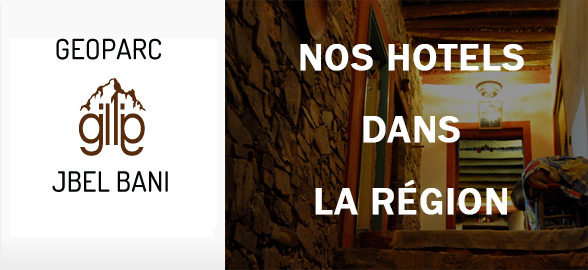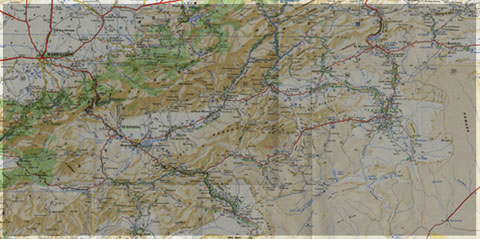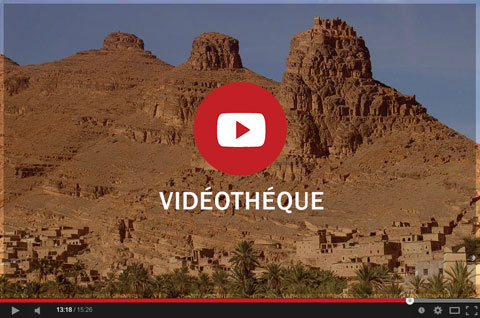Recherchez sur le site !
Recherche avancée / SpécifiqueCatégories publications
+ Sciences De La Terre - Archéologie - Astronomie - Spéléologie - Ecologie - Pédologie - Volcanologie - L'hydrogéologie - Géomorphologie - Minéralogie - Pétrologie - Paléontologie - Géologie + Climatologie - Réchouffement climatique - Changement climatique + Plantes - Plantes Aromatiques - Plantes médicinales + Zoologie - Faunes + Botanique - Flors + Sciences humaines - Géo Eco Tourisme - L’anthropologie - L'Histoire - Démographie - Sociologie - Géographie - Patrimoine culturel
Géo éco tourisme inclusif

Géoparc et Recherche Scientifique
Le coins de l’étudiant



Blog Géoparc Jbel Bani
Towards city resilience, food security and territorial learning. Three territorial paradigmatic shifts triggered by the COVID-19 pandemic.
Sandrine Simon [0000-0002-3769-9834], Universidade Lusófona. Interdisciplinary Centre for Research on Education and Development CeiED.
sandrine.simon.dina@gmail.com
Abstract –
According to projections, the urban share of the world population will grow to 66% by 2050, with people moving to cities seeking shelter and jobs. Whilst the current pandemic is questioning the validity of globalisation upon which our societies rely, cities are growing even more dependent. Although the in-comers are hoping the city will provide them with what they need, they themselves could help to co-create a new urban reality in which people learn from each other to build more urban autonomy. This collaborative process will need to be facilitated through new approaches in urbanism that we suggest tackling here through the issue of city food security. Throughout time, historical ties to the localised food production system have been disrupted: globalised food systems have encouraged unsustainable industrial production processes that have, beside generating pollution and reduced biodiversity, damaged our health, created dependencies, and has impacted upon food security. The objective of this chapter is to discuss the rationale for a new research project. Through a focus on Urban Agriculture in Lisbon, the project will analyse the potential for an urbanistic reform that could facilitate the creation of a sustainable food system based on sustainable agriculture, the circularity of activities, the empowerment of participants, equipped with ‘soft skills’ and the collective co-creation of sense-making of the city space. This chapter examines three shifts concerning our approach towards the metropolitan area of Lisbon paradigmatic as a contextual territory for urban agriculture. First, a shift away from a nature vs city dichotomy; then a reflexion on how cities could also become food production spaces and, finally, a shift away from global educational systems and geared towards context-territory-based problems to be solved by local participants through new forms of Territorial Education.
Keywords –
Food security, circularity, urban agriculture, social urbanism, territorial education; resilient cities
INTRODUCTION
While cities cover 3% of all land areas on the planet, they consume 75% of the world’s energy, generate 80% of CO2 emissions, use large quantities of water and create an enormous amount of waste and pollution (UN, 2018). The objective of this research is to contribute to finding ways of making cities more sustainable. In particular, the aim is to increase cities’ food security, citizens’ sense of identity and belonging and to improve urban planning by integrating social urbanism values and social learning processes into it. The way in which we suggest doing so is to explore how Urban Agriculture (UA) projects could serve as platforms i) for the Simon, S., 2022
Smaniotto Costa, C. & Aragão, N. (Eds.): Understanding and transforming the territory, pp. 25-37, 2022
https://doi.org/10.24140/2020-sct-vol.XXXXX
participatory creation of knowledge and skills in various target groups, ii) for the improvement of decision-making process and iii) to identify ways to assess the circularity of the food system processes and its contribution as a barometer in urban planning.
The research project described here adopts a multidisciplinary approach by working at the intersection of the two PhD programmes (one in education and one in urban planning). Finding ways of making cities more sustainable addresses the need to transform urban planning processes. – in addition to improving the way they are built and managed. This is a social learning and participatory issue, which will transpire through social urbanism only if both planners and stakeholders are involved. For this to happen, new types of platforms need to be created. New advances in Territorial Education (TE) can help this; learning will be further enhanced if young stakeholders learn skills and feel better equipped for their future, and if older stakeholders are also invited to learn and share their know-how. The objectives of this project relate to those of the CeiED research areas, in particular those of the CEM and CIDATE, to the research programme in social urban planning, and also aligns with the FCT objectives to make scientific outputs accessible to citizens.
In order to address the research questions raised by this book – i.e. to help us “increase the understanding, the challenges, the strategies of use and the management of the territory as well as processes and mechanisms of production of the urban space” - this chapter discusses three territorial paradigm shifts in three parts.
We first start by exploring how environmental and food security concerns, exacerbated by the pandemic have questioned the territorial dichotomy between cities and the countryside. Then, a focus on circular economies, which link UA activities to other activities, will emphasise the importance in setting up the boundaries of the food systems at stake. Finally, we will explore at what territorial scale, and in which context, learning and governance are being facilitated to promote the development of sustainable cities.
PDF Article Complet
Source web par : Sandrine Simon
Les tags en relation
Dictionnaire scientifique
Plus de 123.000 mots scientifiques
Les publications
Géo parc Jbel Bani

Circuits & excursions touristiques

cartothéques


Photothéques
Publications & éditions




